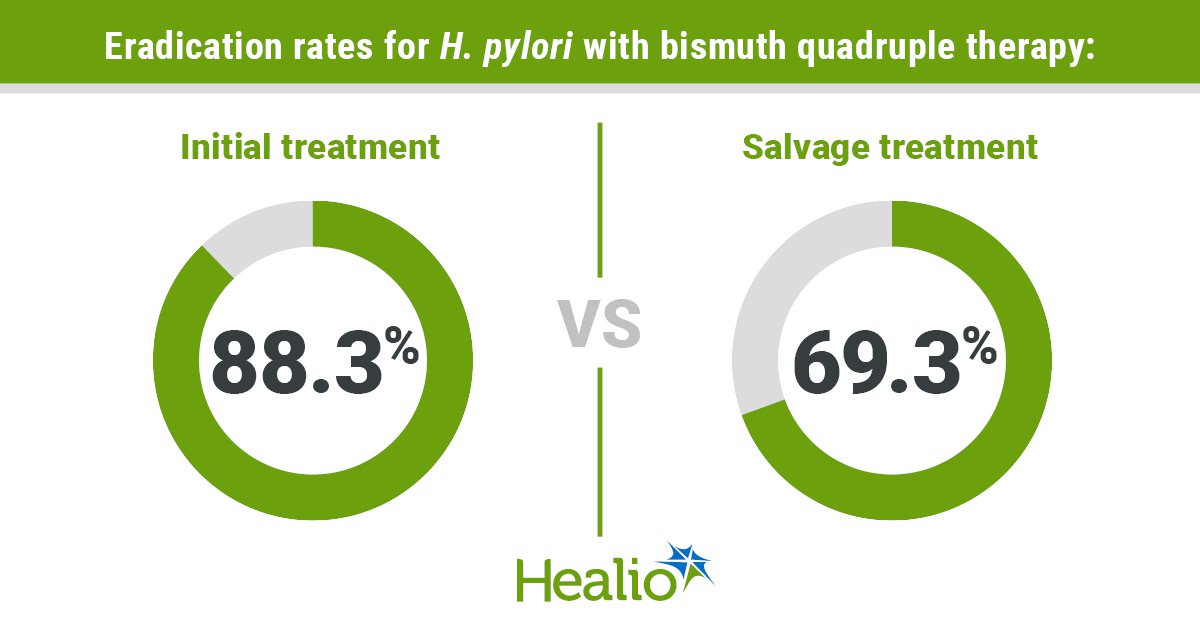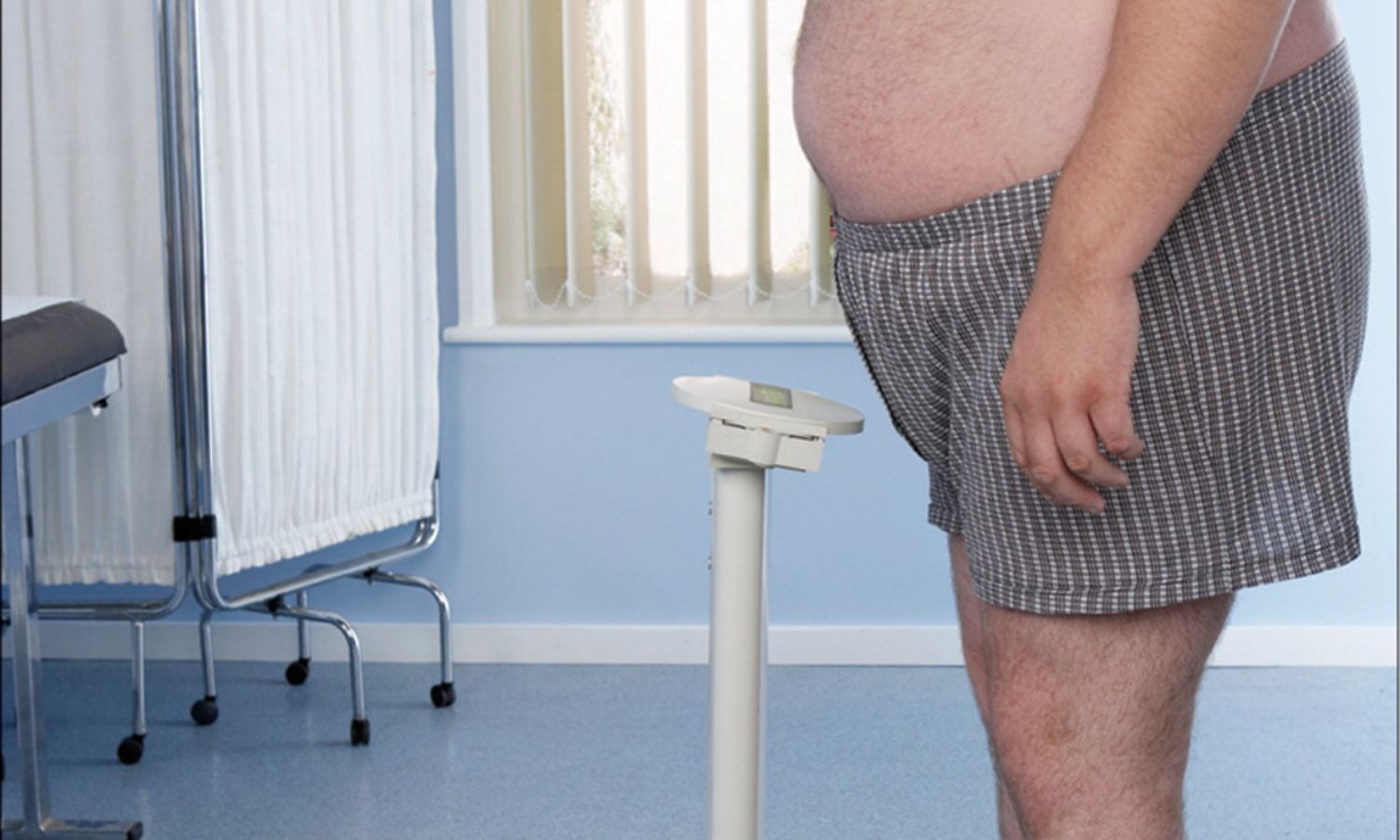August 01, 2025
2 min read
Key takeaways:
- Concomitant and bismuth quadruple therapies had success rates of nearly 90% for initial treatment of H. pylori.
- Previous use of macrolide antibiotics or metronidazole affected efficacy of certain regimens.
Bismuth quadruple and concomitant therapies yielded the highest eradication rates for initial treatment of Helicobacter pylori in a large U.S. population, according to study results published in Clinical Gastroenterology and Hepatology.
Among patients who required a second round of antibiotics, bismuth quadruple therapy was the most successful regimen, with an eradication rate approaching 70%.

Data derived from Merchant SA, et al. Clin Gastroenterol & Hepatol. 2025; doi: 10.1016/j.cgh.2025.06.029.

Dan Li
“There are many different regimens used to treat H. pylori,” study author Dan Li, MD, a gastroenterologist and clinical investigator with the delivery science and applied research program at the Kaiser Permanente Division of Research, told Healio. “But as antibiotic resistance has become more widespread in the U.S. in recent years, we have been seeing decreasing effectiveness of many of the regimens we have typically used.”
In the retrospective cohort study, Li and colleagues evaluated the efficacy of several treatment regimens for H. pylori using electronic health record data from patients who received initial and salvage treatment at Kaiser Permanente Northern California between 2000 and 2022.
The researchers found that among 26,669 H. pylori-infected patients who received initial treatment, a 14-day regimen of concomitant therapy — which included a proton pump inhibitor, amoxicillin, clarithromycin and metronidazole (PACM-14) — attained the highest eradication rate of 89.8% (95% CI, 89.3%-90.3%).
A close second was a 14-day regimen of bismuth quadruple therapy — comprised of a proton pump inhibitor, bismuth, metronidazole and tetracycline (PBMT-14) — with a success rate of 88.3% (95% CI, 87.3%-89.3%).
Among the 5,389 patients who received salvage treatment, PBMT-14 had the highest eradication rate (69.3%; 95% CI, 66.9%-71.7%). No regimen given as salvage treatment reached a success rate above 70%.
“Our study identified the two most effective treatments in a large community population in the U.S.,” Li told Healio. “The most recent American College of Gastroenterology guidelines on H. pylori treatment recommend using bismuth quadruple therapy as the first-line initial treatment and after a treatment failure, but this recommendation is based on data primarily obtained from Asia and Europe. Our findings support this recommendation by providing data from the largest study in the U.S.”
Eradication success rates for clarithromycin-containing regimens dropped significantly with previous exposure to macrolide antibiotics (PACM-14: adjusted OR = 0.68; 95% CI, 0.6-0.77). Likewise, previous use of metronidazole significantly decreased success rates of most regimens containing metronidazole, including PACM-14 (aOR = 0.52; 95% CI, 0.46-0.59) and PBMT-14 (aOR= 0.61; 95% CI, 0.5-0.75).
“Patients who had previously been treated with a macrolide antibiotic or metronidazole were significantly less likely to have their H. pylori eradicated when they were treated with any regimens containing clarithromycin or metronidazole,” Li said. “In addition, re-prescribing patients the same regimen was much less likely to successfully eradicate the bacteria.”
The researchers acknowledged study limitations, including its retrospective design and uncertainty about whether patients completed treatment as prescribed. The analysis also did not include newer antibiotic regimens, such as rifabutin triple therapy, due to inadequate use in the study population.
According to Li, these findings could help guide clinicians in choosing the most effective first-line treatment for H. pylori and also inform selection of a second regimen, if needed.
“We suggest quadruple therapies be considered the first-line choice for H. pylori, particularly the bismuth quadruple regimen, which is highly effective for both initial treatment and salvage treatment,” he added. “Clinicians should review the patient’s history of antibiotic use when selecting an H. pylori treatment regimen.”
For more information:
Dan Li, MD, can be reached at dan.x.li@kp.org.










